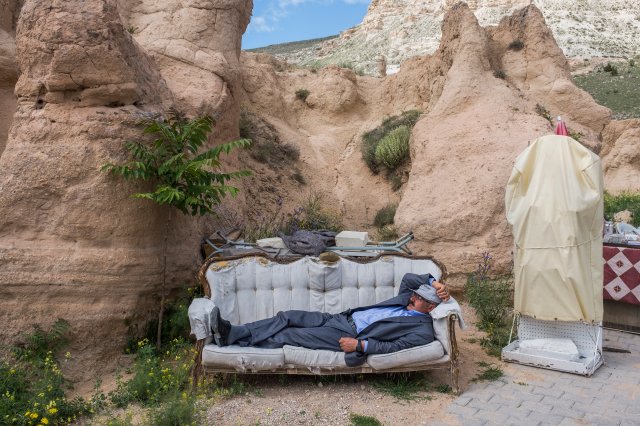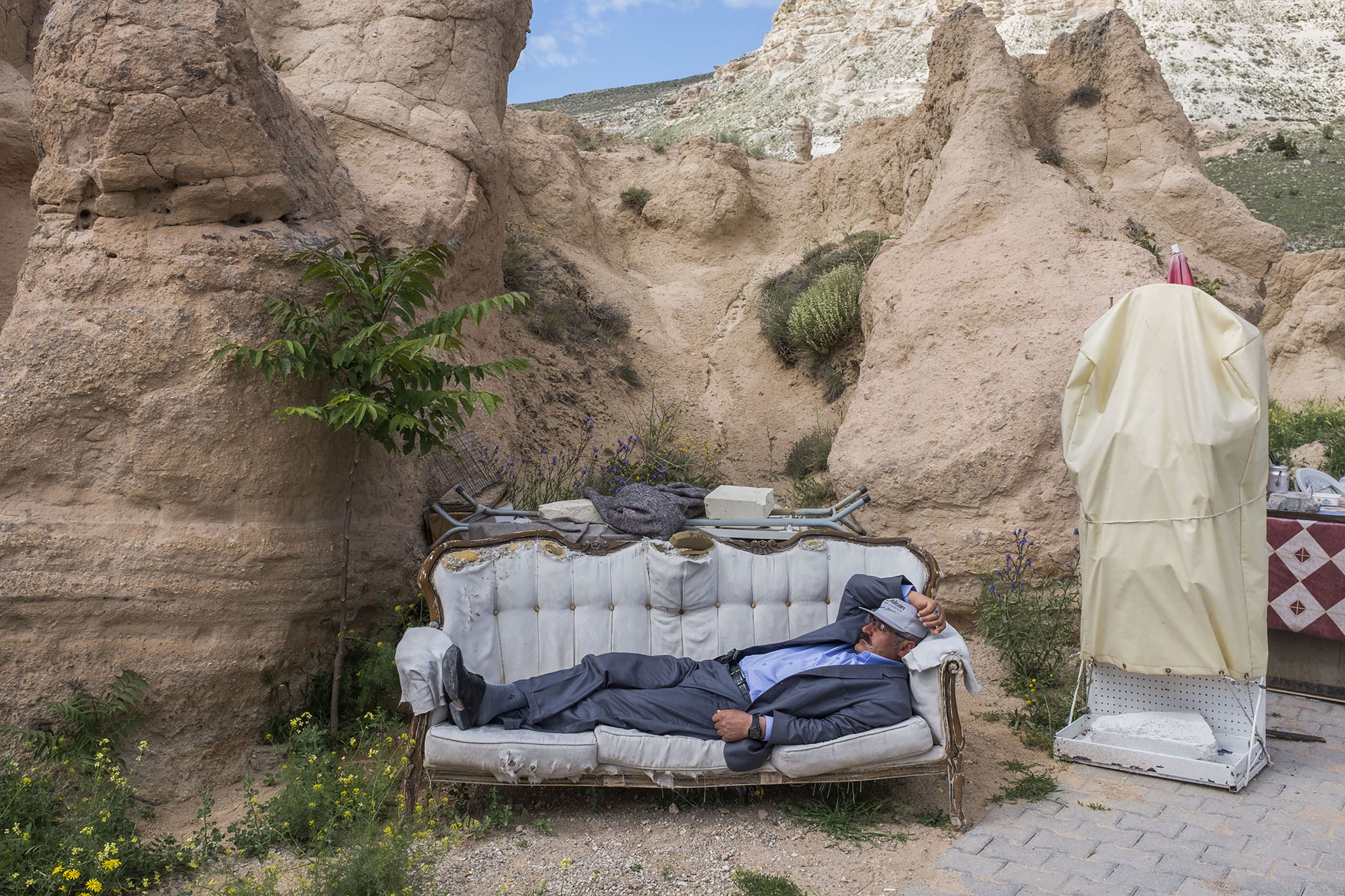THE WAGES OF TERROR
in turkey, the toll of terrorism can be counted in dollars
By Jared Malsin/Istanbul | Photographs by EMIN OZMEN—MAGNUM for TIME
Over the past few years, ISIS has repeatedly targeted tourist hot spots across Europe and the wider Mediterranean region. The slaughter of holidaymakers has become a grim annual staple, from the massacre of 38 European beachgoers in Sousse, Tunisia, in June 2015; to the truck attack in July 2016 on mainly French tourists celebrating Bastille Day in Nice; to this year’s attacks on visitor attractions like London’s Borough Market and now the main artery of Spain’s second city.
Tourists do tend to gather in the public places that represent soft targets to attackers, but the strategy also brings a heavy economic blow to the countries they attack. In Tunisia, the killings at Sousse and at Tunis’ Bardo Museum in 2015 scared away European holiday-makers, resulting in a $2 billion hit that slowed economic growth to less than 1%. In Egypt, visitor numbers fell from 14 million in 2010 to just over 5 million last year, though the tourism industry is now showing signs of recovery.
Few economies have suffered a more sudden decline than that of Turkey, however, where a wave of attacks combined with several seasons of political upheaval has torpedoed the country’s tourism industry.
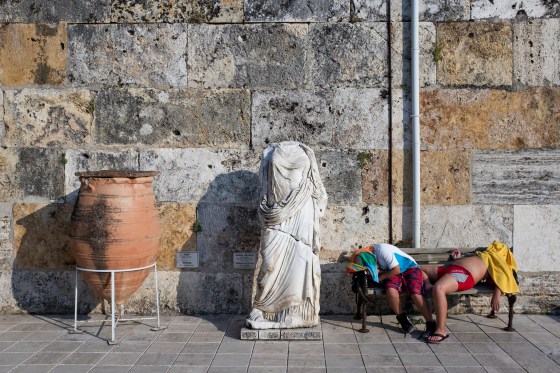
Local boys nap outside a deserted museum in Pamukkale.
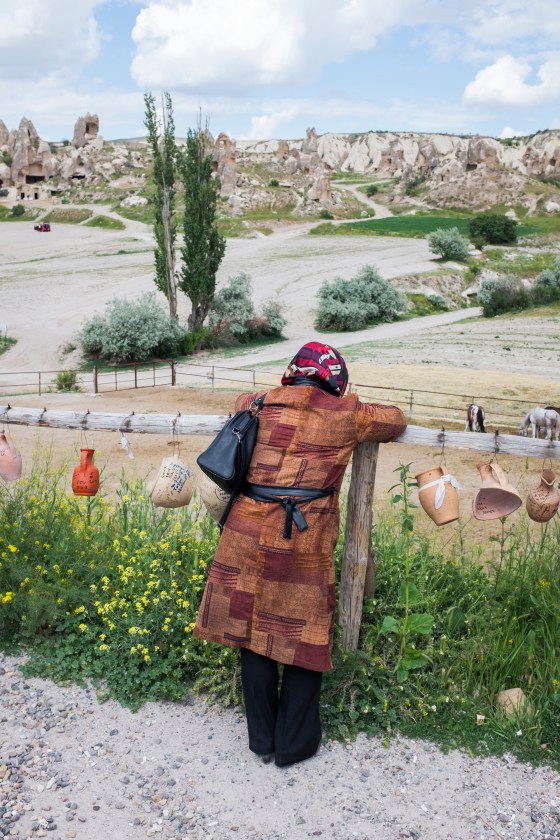
A Turkish tourist stands near horse livery in Goreme.
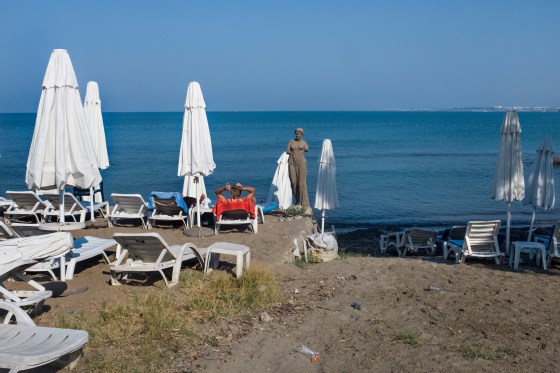
A woman rests on a sun lounger, in an empty Side resort.
In 2014, Turkey had been the sixth most popular tourist destination in the world, welcoming 37 million visitors. In 2016, when Turkey was shaken by bombings, a failed military coup and a political crackdown, only 25.3 million came, according to the government. Throughout 2016, ISIS specifically targeted the tourist infrastructure, attacking Istanbul’s main airport; the historic Sultanahmet district; and Istiklal, a vast pedestrian boulevard comparable to Las Ramblas. “You know how people get when hearing those stories. So they don’t want to come,” says Emin Emingil, 28, a tourist guide in Istanbul.
The damage to other European tourist economies by ISIS-inspired attackers has not been as catastrophic, but the toll has been felt. Following the November 2015 gun and bomb attack in Paris, 1.5 million fewer tourists visited the French capital of Paris in 2016 compared with the year before. But France remained the world’s top tourist destination in 2016, welcoming as many as 83 million visitors, albeit down from the record of 85 million in 2015.
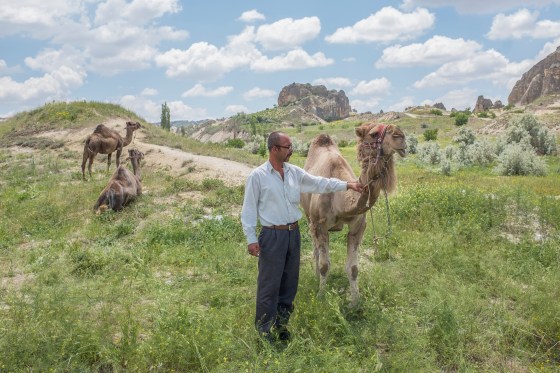
Enver, a camel rider. “Two years ago, I had 4 tours in a day, now I have to be happy if I can do one tour in a week, there is no ourists here anymore”.
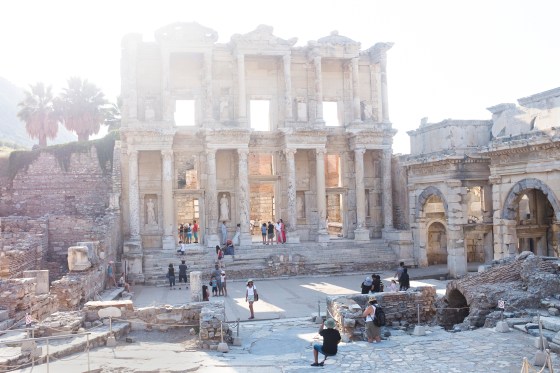
Ephesus a large archaeological site in Aegean Turkey and one of Turkey’s major tourist attractions.
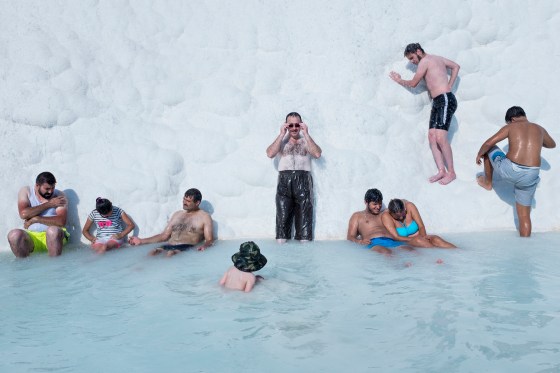
People swim in Pamukkale “Cotton Castle”.
For Islamic State extremists, these attacks offer an inexpensive way not just to target victims from across the world, but also to project power and sow fear. Using a diffuse network of operatives and homegrown devotees, ISIS continues to assert its position as the world’s foremost jihadist group, making its case to would-be “soldiers” and posing a challenge for security services everywhere. Even as ISIS gunmen lose the ground war in their citadels in Iraq and Syria, the group’s campaign of terror shows no sign of slowing down in Europe and the Middle East. When mayhem is sown so easily using tools no more high-tech than rented vans and trucks, it is hard for anybody to stop.
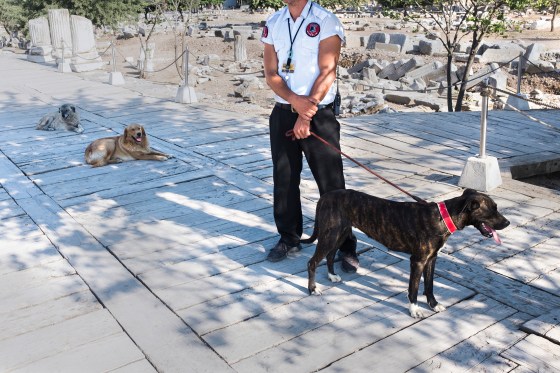
Sercan, and his dog Dori. He has been working as a security guard at the large archaeological site, Ephesus, for 6 years.
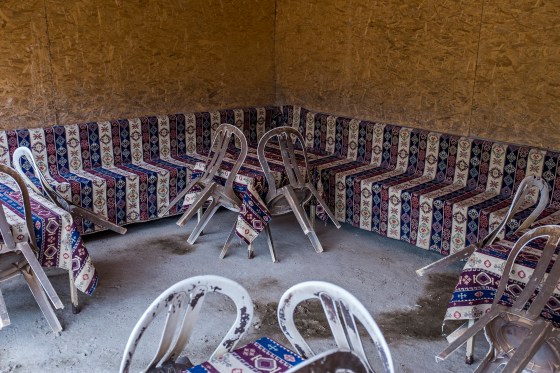
An empty tea house in Cappadocia.
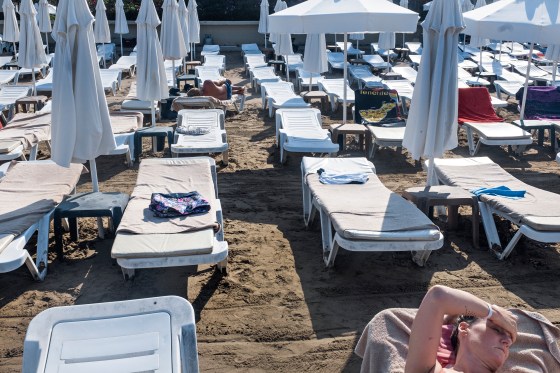
There are plenty of spare sun beds in the Turkish resort town of Side.
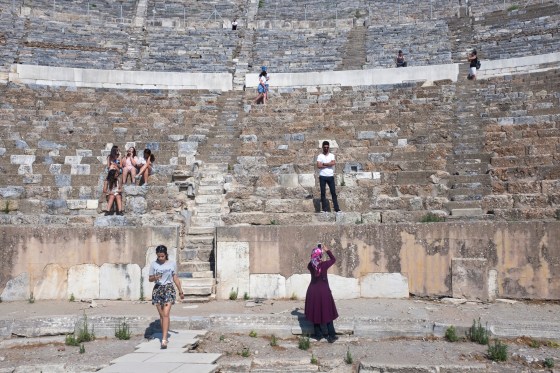
Tourists walk past the Ephesus Amphitheatre.
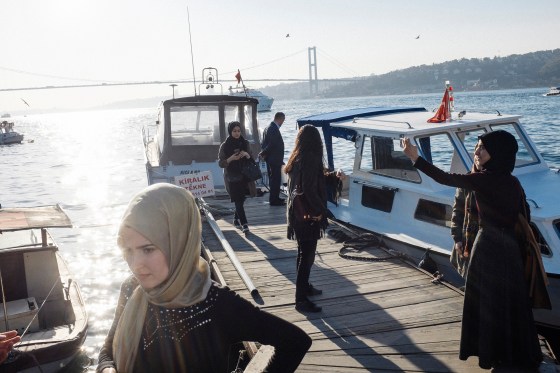
People take selfies near Cengelkoy in Istanbul.
